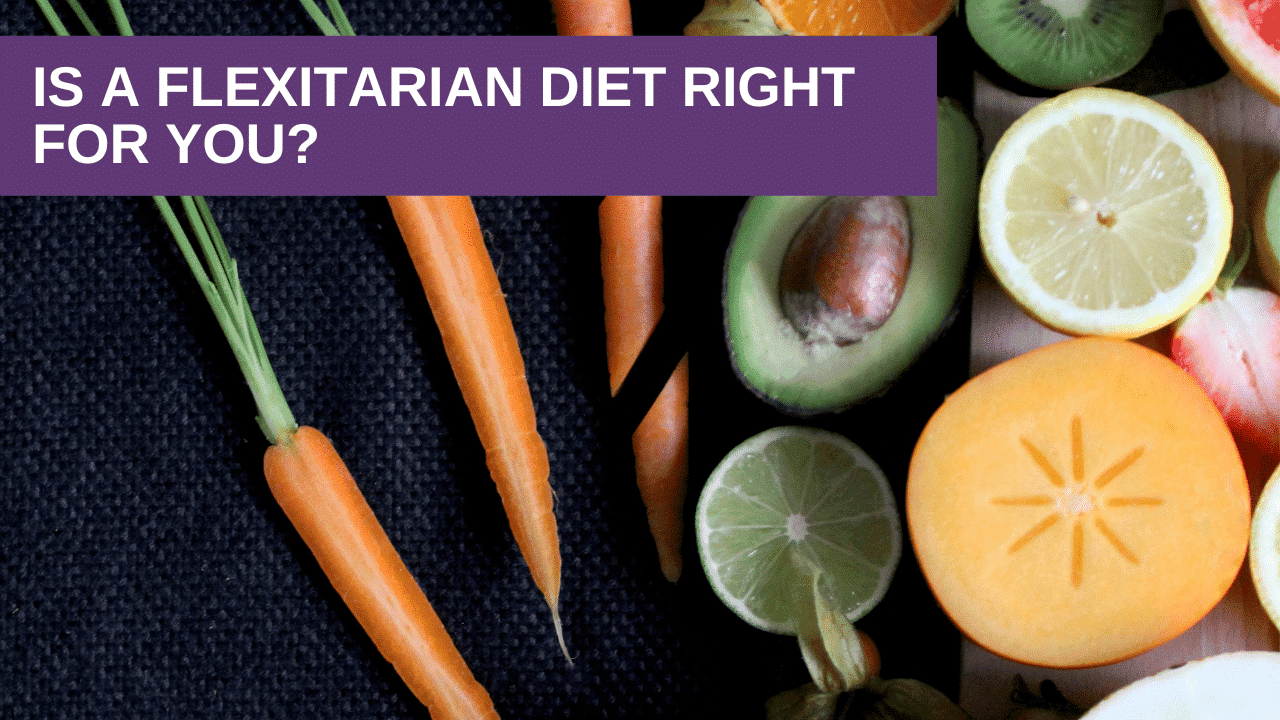“Flexitarian” is a term that’s been coined in the last few years, that combines the word “flexible” with “vegetarian.”
A flexitarian diet is basically a vegetarian diet, where you occasionally eat meat.
Flexitarians consume some meat, fish, and poultry. A flexitarian diet is rated second behind the Mediterranean diet in terms of health benefits and ease of consumption. It’s also second in effectiveness for weight loss and reduction of chronic disease.
However, this is only as long as the flexitarian is following a truly plant-based diet, instead of just eating a lot of carbohydrates. Just adding occasional meat to a starch-rich diet is not healthy. But if it’s truly plant-based, adding small portions of animal protein can be beneficial. Plant-based means you’re consuming mostly fruits and vegetables, whole grains and legumes, as well as nuts and seeds. Some flexitarians consume meat just once a day, others limit their consumption to once a week. Some as little as once a month.
Being a flexitarian is indicated in the name – flexible.
One thing I’ve seen with flexitarians is that when they go from being vegetarian to then reintroducing meat into their diet, they need to go slowly. It does take a little more hydrochloric acid in the stomach to actually break down flesh. If you haven’t had meat in your diet for a very long time, you’re probably not making as much hydrochloric acid as you used to. You will benefit from going slowly and eating very small portions of meat before trying to eat a huge steak. As long as your diet has a lot of variety of food sources and is plant-based (fruits and vegetables, nuts and seeds, whole grains, and legumes) then having some meat can actually be a good source of protein.
I do find it interesting that in the Blue Zones – the areas of the world where people live to be over 100 years of age – the majority of their diets would be considered flexitarian. They do eat some meat, but they don’t eat it very often. It’s not at every meal, and it’s usually not even every day. This makes a huge difference when it comes to longevity.
Is a flexitarian diet a good way to lose weight?
The simple answer is yes, if you’re eating a standard American diet, meaning, mostly white stuff, and lots of fried foods. However, if you’re already eating a pretty healthy diet (ie: you’re paleo) you’re probably not going to lose any more weight on a flexitarian diet. If you’re already eating a vegetarian diet and you just add meat, you’re not going to necessarily lose much weight unless you were protein-deficient before. Remember, weight loss has to do with not just what you eat, but how active you are.
The key to weight loss is all about getting an adequate amount of exercise. And be sure that you’re not consuming lots of high glycemic index foods. These carbohydrates get turned into sugar quickly. So, try to avoid starches like flour, bread, pasta, white rice, white potatoes, as well as baked goods and candies. These carbs end up getting stored as body fat pretty easily. Avoiding those types of foods on any of the diets will make a big difference.
If you have questions about the flexitarian diet, why don’t you join us in our Hormone Support Group? We talk a lot about what diets are healthy and share meal ideas and recipes. You can access it through our Hormone Reboot Training.
Research Reference: Biology’s response to dieting: the impetus for weight regain, High fat induces acute and chronic inflammation in the hypothalamus, Hypothalamus-pituitary-adrenal axis in glucolipid metabolic disorders.



0 Comments